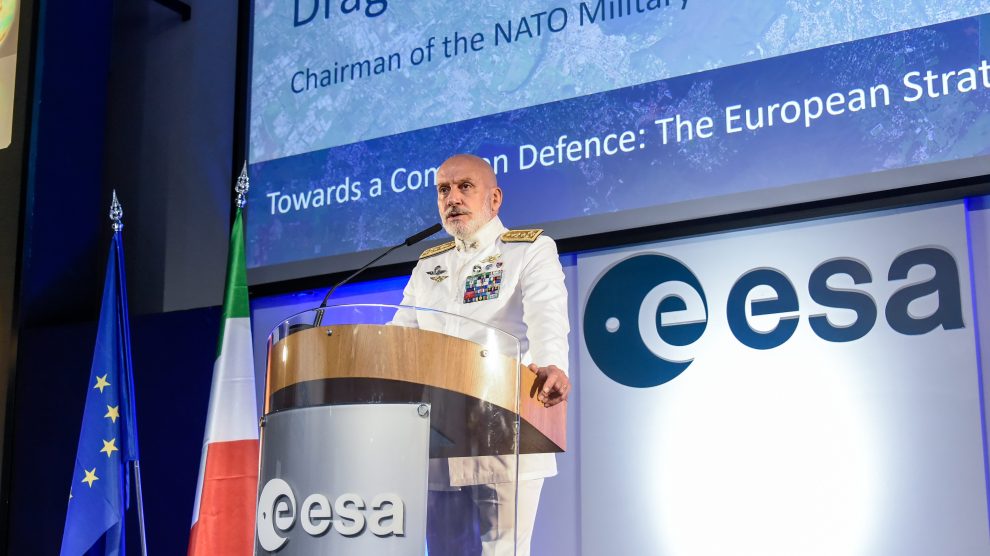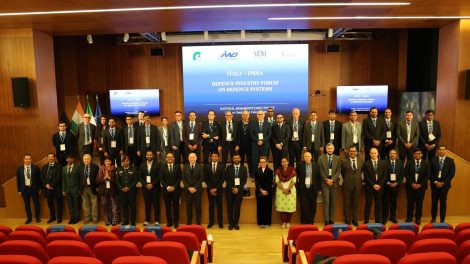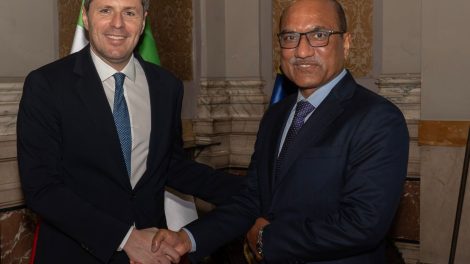The backdrop. Autocracies on the rise, liberal democracies under pressure.
- The battlefield shifts to satellites, cyberspace and disinformation.
- Intelligence sharing and cyber defense emerge as decisive enablers.
The signal from Frascati. This wasn’t just a technical workshop. It was a political signal: Europe knows its vulnerabilities — from seabeds to satellites, from networks to narratives — and wants to turn them into a common strategy.
- The challenge is military, technological, economic, and democratic all at once.
What Brussels says. Andrius Kubilius (Commissioner for Defense and Space): “Russia abuses space to wage war; Ukraine uses it to defend itself. Europe cannot leave space to its enemies.”
- Carlo Corazza (European Parliament): “It’s not enough to spend more, we must spend together.”
- Roberta Metsola (EP President): “Collective security requires a long-term vision, not just budgets”.
- Claudio Casini (European Commission): “Defense and security are now central priorities to preserve Europe as a zone of freedom”.
NATO’s military view. Adm. Giuseppe Cavo Dragone (NATO Military Committee): “Without mastering space, there is no early warning, no anticipation of threats, no collective response. Cyber is the front line of daily battle.”
- Called the event a “strategic crossroads”, urging immediate decisions.
- Stressed complementarity: NATO brings military posture, the EU brings investment and regulation.
Italy’s defense posture. Gen. Antonio Conserva (Air Force Chief): “operational readiness across all domains, including new ones, is key”.
- Investments in space defense seen as a top priority.
- MEP Nicola Procaccini: strengthening Europe’s pillar of NATO must fully involve the U.S.
Industry speaks. Adolfo Urso (Industry Minister): “space is the new frontier of international security — Italy ready to act as a protagonist nation”.
- Pierroberto Folgiero (Fincantieri): warships are now unmanned, robotic systems; the underwater domain is emerging as critical.
- Domitilla Benigni (Elt Group): “Cyber and electronics are now strategic industries. No country can do it alone.”
- Giulio Ranzo (Avio): “space sovereignty has no low-cost option.”
Cyber as a political priority. Matteo Piantedosi (Interior Minister): “over 500 hybrid attacks and disinformation operations in 2024 in Italy. Cyber defense is now a political and social priority.”
- Roberto Viola (European Commission): “Europe needs joint investments and rules for space and cyber”.
- Bruno Frattasi (National Cybersecurity Agency): “protecting democracy means investing in AI and quantum technologies”.
- Hans de Vries (ENISA): “Europe must respond simultaneously with a common language to hybrid threats”.
Intelligence outlook. Vittorio Rizzi (DIS chief): threats are multi-domain, interconnected — from cyber to space to cognitive warfare.
“The war of perceptions and information will be the most insidious battlefield.”
- Urges intelligence sharing to protect Europe’s digital sovereignty.
The big picture. Security is no longer about borders. It runs through seabeds, satellites and perceptions.
- Europe’s ability to act together will decide if it stays a space of freedom under hybrid pressure.
What next. Europe has mapped the threats. The test now is speed: turning joint spending, shared intelligence and cyber-space investments into facts before rivals exploit the gaps.





